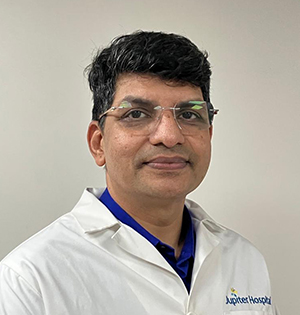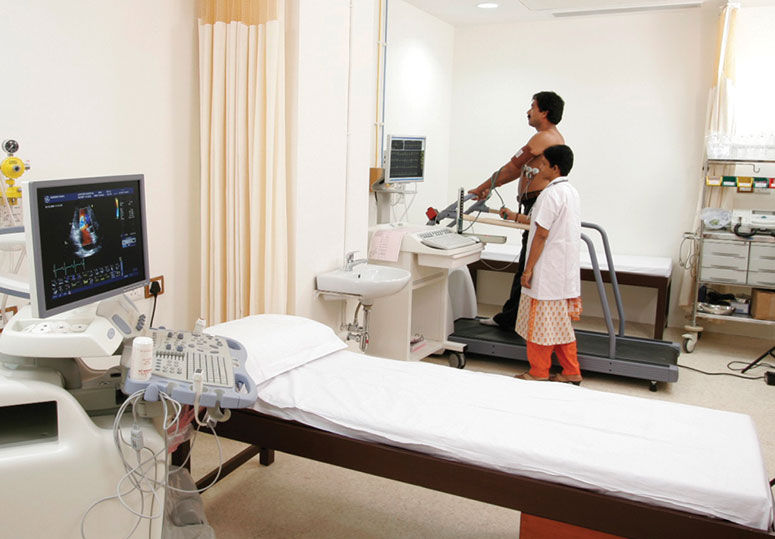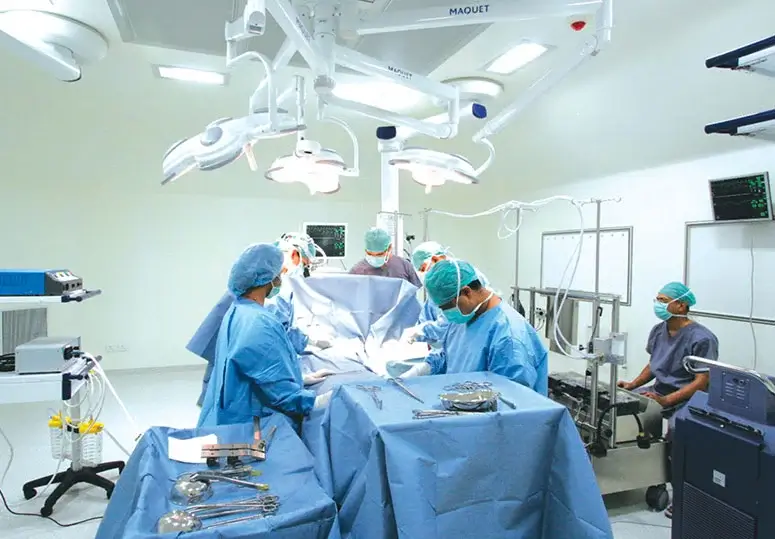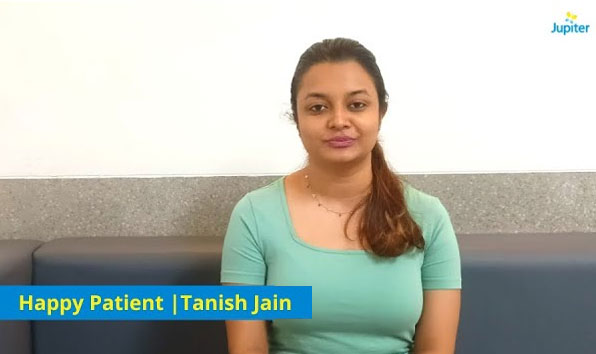Pain Clinic in Pune
Expert Care for Chronic and Acute Pain: Your Path to Relief
Explore the Pain Clinic in Pune at Jupiter Hospital, where a committed team of pain management specialists strives to empower patients to lead lives free from pain. Utilizing advanced pain management techniques, medications, physiotherapy, and lifestyle modifications, our clinic crafts individualized treatment plans for all our patients.
Pain Management is often misunderstood as mere pain relief or reliance on painkillers. At Jupiter Hospital, Pain Management Consultants go beyond surface solutions, delving into the root causes of pain and formulating effective strategies for relief.
Pain can emerge from various sources, including underlying diseases, disorders, injuries, or treatment side effects, disrupting daily activities unexpectedly. Jupiter Hospital's Pain Management Clinic in Pune recognizes pain management as a distinct medical field, dedicated to improving patients' quality of life by minimizing or eliminating pain. The holistic approach encompasses therapies, exercises, medications, relaxation techniques, meditation, and lifestyle adjustments, addressing both acute and chronic pain.
The skilled team at the Pain Clinic in Pune focuses on the significance of promptly addressing any form of pain for optimal long-term results. Through meticulously tailored plans, the clinic aims to manage pain effectively, whether persisting for days or months, allowing a renewed focus on daily activities without the constant burden of discomfort.
Team
Conditions triggering pain:
- Musculoskeletal conditions like joint pain, frozen shoulder, cervical spondylosis, and different types of arthritis such as Gout, rheumatoid arthritis and osteoarthritis
- Autoimmune conditions like Lupus and Crohn's disease, which are triggered by an abnormality in the immune system owing to which it either stops attacking foreign bodies or mistakes the patient's own cells as foreign bodies and starts attacking them.
- Endometriosis
- Chronic pain disorders like fibromyalgia and Central pain syndrome
- Facial pain
- Neuropathy, which refers to severe nerve damage, usually caused by underlying conditions.
- Chronic headaches
Types of Pain
- Acute pain: Acute pain manifests suddenly and intensely, often triggered by injuries or underlying diseases. The Pain Clinic recognizes that addressing the root cause is paramount for relief. Conditions such as bone fractures, appendicitis, and burns fall under the category of acute pain, and the clinic employs targeted strategies for prompt resolution.
- Chronic pain: It is often the consequence of untreated or overlooked injuries or diseases. The Pain Management Clinic in Pune focuses on chronic pain associated with conditions like arthritis and fibromyalgia, aiming to alleviate prolonged discomfort through comprehensive and tailored treatment plans.
- Nociceptive pain: Nociceptive pain stems from tissue damage, activating nociceptors that send signals to the brain, resulting in sudden pain onset. The clinic recognizes the importance of addressing nociceptive pain caused by various injuries or conditions affecting the tissues, employing specialized interventions.
- Neuropathic pain: Neuropathic pain, arising from issues in the nervous system, generates pain signals without a specific underlying cause. Conditions such as diabetes or HIV can lead to neuropathic pain, and the Pain Clinic emphasizes targeted approaches to manage and relieve this particular type of pain.
Pain Evaluation in Pune
Starting the pain management journey entails figuring out the root cause, shaping the entire treatment plan based on this insight. During the consultation, our specialists in Pune will inquire about relevant details, delving into your medical history to identify potential pain triggers. If the underlying cause is known, our dedicated team will design a focused plan and proceed accordingly. In cases where the cause remains elusive, diagnostic tests may be suggested to confirm the diagnosis.
Moreover, crucial factors like the location and intensity of the pain play a pivotal role in this comprehensive assessment, ensuring a thorough understanding of the individual's pain experience.
Pain management modalities
- Home Solutions: For mild to moderate injuries involving bones and muscles, like sprains or twists, home remedies are often recommended. Patients are advised to follow techniques such as RICE (rest, ice, compression, elevation) or engage in simple exercises.
- Counseling and Therapeutic Approaches: Crucial in reshaping the mind's response to physical pain, counseling and therapeutic modalities, including cognitive-behavioral therapy and biofeedback, play a pivotal role. These interventions prove beneficial for addressing anxiety and depression associated with long-term pain, employing methods like therapy, regular counseling, and meditation techniques.
- Physical Activity: Regular exercise is emphasized for improved blood flow, enhancing overall mobility, range of motion, and posture. Exercise options extend beyond heavy lifting to activities like yoga, Pilates, swimming, cycling, and jogging.
- Hands-on Treatments: Integrated into modern medicine for proven effectiveness, specialized hands-on treatments like physical therapy, oil massages, chiropractic adjustments, and acupuncture aim to reduce pain and enhance mobility.
- Lifestyle Adjustments: Linking pain to lifestyle factors, positive changes in habits can lead to improvement. Lifestyle modifications encompass weight loss, increased physical activity, improved sleep cycles, and adopting a healthy diet.
- Medication Options: For cases not responding positively to other treatments, medication is recommended. It can be used as a primary treatment or in combination with other approaches, commonly involving antibiotics and anti-inflammatory drugs.
Benefits of pain management
- Improved quality of life
- Better mental health
- Enhanced mobility
Looking for the Pain Clinic in Pune
Living with pain can be debilitating, impacting your daily activities and overall well-being. While some pain is temporary and resolves on its own, chronic pain can persist for months or even years. If you're experiencing pain that interferes with your life, a pain management specialist can help. Here are some signs it's time to consult a pain specialist:
- Chronic Pain: Generally, pain is considered chronic if it lasts longer than three months. This includes pain in your joints, back, neck, or from headaches.
- Persistent Pain After Treatment: You've been following your doctor's treatment plan for pain relief, but your pain persists or worsens.
- Pain Impeding Daily Activities: Pain makes it difficult to perform everyday tasks like work, housework, or hobbies.
- Disrupted Sleep: Pain is affecting your sleep quality, leading to fatigue and impacting your overall health.
- Medication Ineffectiveness: You're taking pain medication as prescribed, but it's no longer providing adequate relief.
- Considering Pain Medication Reduction: You'd like to explore alternative pain management options to reduce reliance on medication.
















 View Map
View Map Book an Appointment
Book an Appointment Find a Doctor
Find a Doctor Health Check-up
Health Check-up













 Find a Doctor
Find a Doctor Health Checkup
Health Checkup Book an Appointment
Book an Appointment